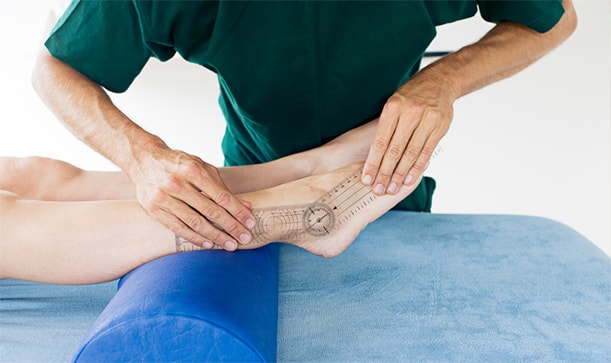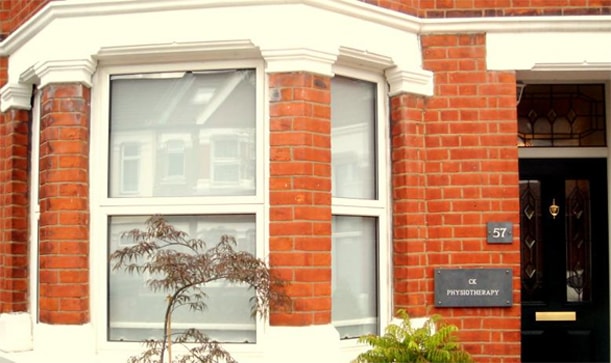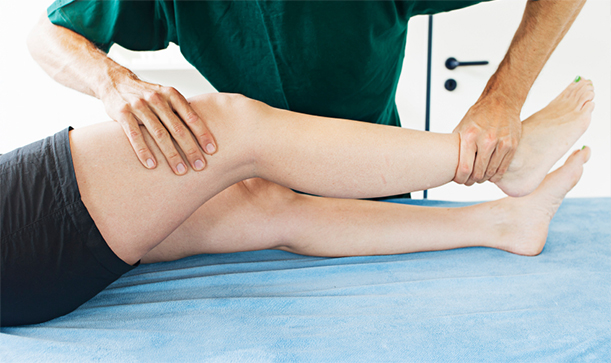CK Physiotherapy
AREAS COVERED
W7, W5, W13, Ealing, West London
57 Elthorne Avenue
Hanwell, W7 2JY
T: 020 8566 4113
M: 079 572 46185
E: info@ckphysio.co.uk
Location / Parking
We are situated in Hanwell, between Boston Manor Road and Northfields Avenue, south of the Uxbridge Road.57 Elthorne Avenue
Hanwell, W7 2JY
There are parking restrictions Mon - Fri 9-10am and 2-3pm. If you need a permit during this time please inform your therapist when you arrive. There are no parking restrictions at other times.
Opening Times
Please phone the number above during working hours to make an appointment. Our reception service will be happy to book your session.
London Underground / Bus Services
London Underground
10 min. walk from Boston Manor Tube Station.
15 min. walk from Northfields Tube Station.
Bus Service
E8, E3, E2, 207, 607, 83
Request Call Back
Our Blog
Paediatric Physiotherapy Treatment and Methods
By: admin Date: Aug 16th, 2022Children are full of joy and wonder.
Yet, when it comes to being injured, ill or living with an immobilising condition, it can be difficult for them to express themselves or know what is wrong.
This is where paediatric physiotherapy can help.
Paediatric physiotherapy is a branch of physiotherapy that specialises in the treatment of children.
The main goal is to improve the child’s mobility, coordination and strength through exercises, treatments, and education.
In this article, we’ll be discussing:
- - What is paediatric physiotherapy?
- - Is paediatric physiotherapy treatment for your child?
- - The benefits of paediatric physiotherapy treatment
- - Advice on where and how to access paediatric physical therapy
What is paediatric physiotherapy?
Paediatric physiotherapy is a specialised and holistic approach to health care for children and young people.
Whether it be an injury, illness, developmental or physical disability, this specific physiotherapy treatment combines exercise, education, and rehabilitation.
An evidence-based, patient-centred, and goal-oriented health profession, paediatric physiotherapy promotes optimal physical development in babies, children, and adolescents 0-19 years.
Paediatric physiotherapy can be used to treat many different injuries, conditions and developmental issues but is also used for the prevention of future problems such as chronic pain or disability.
Is paediatric physiotherapy treatment for your child?
Paediatric physiotherapy treatment is the use of exercises to improve the movement and function of children with disabilities.
It includes a variety of exercises and treatments, such as stretching, strengthening, massage, and other therapeutic techniques.
Knowing if your child needs physiotherapy treatment can be tricky, especially as paediatric physiotherapy targets many childhood injuries, conditions, and disabilities.
A few questions to ask, is your child experiencing:
- - Musculoskeletal disorders
- - Joint or muscle problems
- - Gait problems
- - Respiratory and cardiovascular problems
- - Gastrointestinal disorders
- - Neurological problems
Your child may also be struggling to reach milestones (rolling, standing, sitting up) or have balance or walking difficulties.
A paediatric physiotherapist will assess your child's symptoms and then develop an individualised plan for them to improve their function.
The therapist will work with you to make sure your child is getting the best possible treatment and that the family understands how they can help at home.
There are a wide variety of methods and exercises that are used in paediatric physical therapy.
Common paediatric physiotherapy methods:
-
- Electrotherapy - electrical currents to reduce pain and swelling and accelerate healing
-
- Hydrotherapy- physiotherapy exercises performed in water. This can be comforting and ease your child's pain.
-
- Kinesiotaping- a specialised tape that helps weaker muscles, relieve tight muscles, promotes tissue healing and reduces pain and swelling.
-
- Manual therapy - hands-on massage therapy, joint mobilisation, and soft tissue manipulation.
-
- Postural and gait exercises- exercises to promote a healthy spine and normal balance and movement.
-
- Movement and exercise - muscle strengthening, stretching, flexibility, coordination, and balance.
-
- Respiratory care - chest clearing and respiratory fitness training & strengthening.
What conditions can paediatric physiotherapy treat?
The use of paediatric physical therapy is used to treat musculoskeletal problems and conditions such as cerebral palsy, muscular dystrophy, spinal cord injuries, and developmental delays.
Many conditions are like those seen in adults and others are specific to children.
Paediatric physiotherapy is different from adult physiotherapy treatment in the way that it considers the developmental stages of childhood and adolescence, as well as their physical and emotional needs.
Common conditions treated by paediatric physiotherapy:
(Not limited to)
- - Acute injuries(fractures, sports injuries, sprains)
- - Burns and plastics
- - Childhood cancers
- - Congenital disorders(Spina Bifida, limb deficiencies, Craniosynostosis)
- - Co-ordination difficulties
- - Developmental delay
- - Learning difficulties
- - Neonatal care
- - Neuromuscular disorders (Muscular Dystrophy, Multiple sclerosis, Myopathy)
- - Neurological conditions(Cerebral Palsy, Head Injury, Spinal Cord Injury)
- - Orthopaedic conditions (Talipes, Torticollis, Plagiocephaly)
- - Respiratory conditions(Asthma, Cystic Fibrosis, Bronchiectasis)
- - Rheumatological conditions(Juvenile rheumatoid arthritis (JRA), Systemic lupus erythematosus (lupus), Ankylosing spondylitis (AS))
Source: Juvenile Arthritis and Other Rheumatic Diseases (stanfordchildrens.org), 1 - Paediatric Respiratory Examination - OSCE Guide | Geeky Medics, 7 common childhood respiratory diseases (choc.org), Pediatric Physiotherapy Conditions - Physiocure Clinic (physiotherapycure.com), Paediatric Physiotherapy | Association of Paediatric Chartered Physiotherapists (csp.org.uk)
Paediatric physiotherapists often work with other healthcare professionals like doctors, nurses, or occupational therapists to provide care for children and help them reach their full potential.
The benefits of paediatric physiotherapy treatment
The goal of paediatric physiotherapy is to help your child recover from their ailment or injury, by reducing pain, improving mobility as well as their ability to take part in activities.
The physiotherapist will usually assess your child's medical history and current condition before creating a treatment plan.
Children process things differently from adults and it’s important that your child feels comfortable with the physiotherapist before proceeding with treatment.
Once they’re happy and understand everything that will happen with paediatric physical therapy, the therapist will then work on improving the child's mobility, range of motion, muscle strength, coordination, and endurance.
The benefits of paediatric physiotherapy are endless:
-
- Identifies early health issues
-
- Successfully treats paediatric conditions
-
- Improves overall health and development
-
- Aids recovery from past injury or trauma
-
- Enhance muscle tone and strength
-
- Amends posture, balance, and coordination
Paediatric physiotherapists are specially trained in working with children and have the knowledge to work on your child’s specific needs.
Not only dealing with acute injuries or post-surgery complications, but they also have experience in working with children that have special needs or disabilities like Down Syndrome, Cerebral Palsy and more.
Paediatric physiotherapy can help with a child’s development as well as their motor skills, speech and language development, gross motor skills, sensory skills, coordination and more!
Paediatric physiotherapy is the best way to ensure that your child has a healthy and happy future.
Advice on where and how to access paediatric physical therapy
Parents are often unsure about the various types of physiotherapy treatment, and whether their children are eligible.
Although not in all cases will it be necessary for your child to receive paediatric physiotherapy. Studies have shown that it can be effective in treating or preventing lower back pain, headaches, and overall muscle tone as they develop.
Book an online consultation today, and our experienced, qualified physiotherapists will happily walk you through the process of assessment. This is an opportunity for you to raise any questions, queries or concerns you may have regarding paediatric physiotherapy.
The first step in the recovery process is to ensure that your child is not experiencing any pain as this can impede paediatric physiotherapy rehabilitation.
The focus of the physiotherapy treatment is to reduce pain, improve strength, flexibility and balance, as well as to increase range of motion.
It’s important to find a physiotherapist that you feel comfortable with and that can communicate well with your child. Working with them closely to identify their goals and create a plan for achieving them.
Paediatric physiotherapy works in conjunction with therapeutic exercises to restore normal function, relieve pain and improve posture.
Get in touch today and enable your child to start living their best life!





